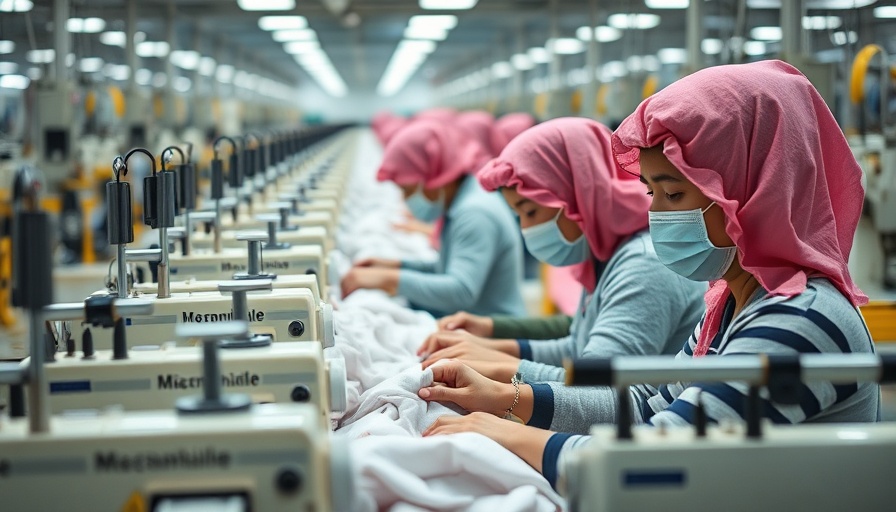
The Ripple Effect of U.S. Tariffs on Chinese Factories
In recent months, Chinese factories have begun a troubling trend: pausing production and scouring for new markets as the fallout from U.S. tariffs becomes increasingly palpable. According to insights from various analysts, including Cameron Johnson from Tidalwave Solutions, sectors such as toys, sporting goods, and everyday consumer products are feeling the burn of lost orders.
Job Impacts and Economic Concerns
The ripple effects of these tariff-induced disruptions reach far beyond factory floors. As manufacturers halt operations, many are forced to make difficult decisions about their workforce. Johnson reported that some companies have temporarily furloughed half of their employees, a move that reflects both economic uncertainty and desperation amid falling demand. The shuttering of factories is occurring in crucial export hubs like Yiwu and Dongguan, raising alarms about potential widespread job losses in an industry that affects as many as 20 million workers, according to estimates from Goldman Sachs.
Finding Opportunities Amidst Challenges
While the situation appears grim, the resourcefulness of Chinese manufacturers cannot be underestimated. Many companies are pivoting towards innovative strategies to mitigate the impacts of falling U.S. orders. Reports indicate that some factories have began exploring alternative trade routes outside of traditional U.S. markets. Others are also leveraging emerging platforms like livestream shopping to connect with consumers in China directly, a concept that could solidify their domestic sales in the short term.
Historically Informed Adaptations
This current crisis mirrors past economic shifts that have prompted drastic changes in manufacturing landscapes. Historical precedents suggest that innovation often arises from adversity. Just as previous trade disputes have forced manufacturers to adapt quickly to new realities, today's challenges may drive more companies to diversify their product offerings and explore new consumer bases globally.
Local vs Global Implications
With the potential to impact millions of workers, the struggles of these factories are not merely a localized issue but resonate globally. As companies worldwide depend on the stability of Chinese manufacturing, the repercussions could lead to increased prices for goods and further economic strain in markets heavily reliant on these imports. It’s a connected web of trade where what happens in one corner of the world can lead to substantial changes in another.
Future Trends and Predictions
Looking ahead, analysts speculate that the ongoing fallout from tariffs could generate lasting changes within global trade dynamics. If the U.S. administration re-evaluates its tariff strategy, there's potential for recovery in affected sectors. Until then, the immediate future may require companies to continue seeking out new opportunities, which may involve working together in ways they had not been inclined to do before.
The adaptability of these factories highlights an essential lesson for all businesses: the importance of resilience and innovation in facing economic adversities. As we see these market shifts take place, it's a reminder that while challenges can feel overwhelming, they often pave the way for new beginnings and opportunities.
 Add Row
Add Row  Add
Add 




 Add Row
Add Row  Add
Add 

Write A Comment